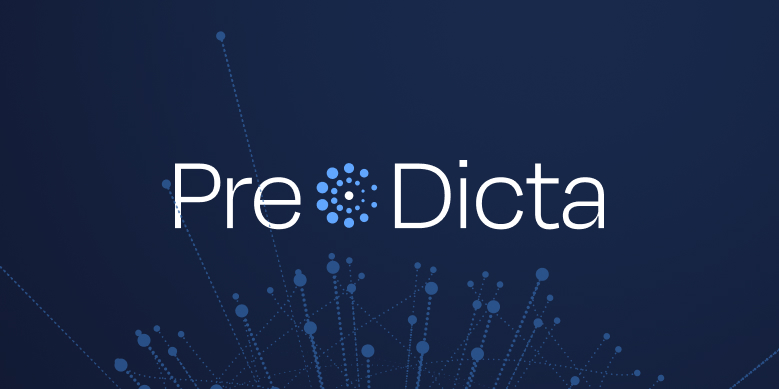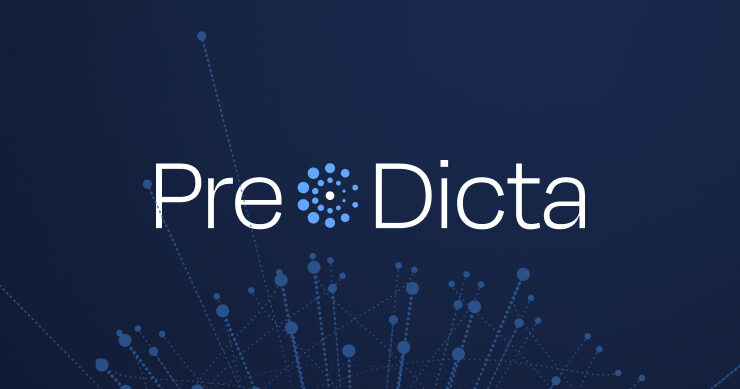Legal Analytics: Revolutionizing the Legal Landscape
| What You Need to Know |
|---|
| Legal analytics improves efficiency and decision-making in law firms. |
| AI and machine learning drive predictive capabilities in case outcomes. |
| Understanding judge behavior is crucial for effective legal strategies. |
The global AI market is projected to skyrocket to approximately $1,811.8 billion by 2030, a significant leap from $136.6 billion in 2022. This growth emphasizes the increasing role of technology in various fields, including law. Legal analytics taps into the power of data, machine learning, and artificial intelligence, transforming how legal professionals operate and make decisions. It provides valuable insights by analyzing vast datasets such as court documents and firm management data, much like a new lens through which lawyers can view the complex interplay of legal precedents and case outcomes.
1. Understanding Legal Analytics
Legal analytics is swiftly becoming a crucial tool for law firms aiming to gain a competitive edge. Many firms are adopting these technologies to enhance their practices. By leveraging data, machine learning, and AI, legal analytics allows firms to analyze extensive datasets, including court documents and internal management data. This analytical approach paves the way for more informed decision-making and strategic planning, acting as a compass guiding firms through the murky waters of legal disputes.
The emphasis on data-driven insights has ushered in remarkable advancements within the legal profession. For instance, legal analytics can help firms grasp case trends and outcomes based on historical data. This ability to predict outcomes based on past cases serves as a guiding light for attorneys navigating the complex landscape of law, unlocking a treasure trove of information that can steer their litigation strategies toward success.
2. The Evolution of Legal Analytics
Over the past decade, the adoption rates of legal analytics have surged, mirroring a broader trend of technological integration within law firms. This evolution is fueled by the need for efficiency and effectiveness in legal practices. PreDicta stands out with its unique approach, utilizing behavioral AI that examines 100’s of different variables related to 13 million decisions by judges across 25 million cases. This focus enables a comprehensive understanding of how judicial behavior influences case outcomes, allowing legal professionals to read data like seasoned sailors reading the winds to chart their course.
As legal analytics continues to grow, firms find themselves better equipped to navigate the intricacies of the legal system. Predicting case outcomes based on data-driven methods enhances strategic planning and fosters a more proactive approach to litigation, marking a significant shift from traditional legal practices, where decisions often hinged solely on instinct and experience.
3. Core Applications of Legal Analytics
The implementation of legal analytics is transforming core applications within law firms. A notable percentage of firms now utilize analytics for various functions, including e-discovery, case assessment, and litigation strategy. By focusing on outcome determinations through behavioral AI, PreDicta allows legal professionals to make data-informed decisions that enhance their chances of success in court. This evolution is akin to upgrading from an almanac to a an AI driven weather satellite system incorporating billions of data analysis instantly, where the efficiency gains are clear and impactful.
Legal analytics streamlines processes and offers insights that were previously unattainable through conventional methods. Attorneys can analyze case characteristics alongside historical outcomes, allowing them to craft effective litigation strategies. This data-driven approach acts as a powerful ally in the courtroom, providing lawyers with the necessary tools to argue their cases more effectively.
4. The Role of AI in Legal Decision-Making
Artificial intelligence plays a vital role in legal decision-making processes. Studies indicate judges and attorneys demonstrate less bias in their decision-making when guided by AI. This reduction of bias is essential for ensuring beneficial outcomes within the judicial system, underscoring the importance of integrating AI into legal practices. AI serves as a neutral intelligence resource, anchoring decisions to facts rather than personal biases.
PreDicta utilizes behavioral AI, focusing on hundreds of distinct variables mapped across 13 Million decisions related to judges, to enhance the accuracy of predictions regarding case timelines and litigation outcomes. By analyzing these variables, legal professionals bring an understanding of the impact of biases and trends that may influence judicial decision-making, fostering more exacting strategies in litigation.
5. Predictive Analytics in Case Outcomes
Predictive analytics revolutionizes how legal professionals assess case outcomes. As a simple example, recent studies reveal a decline in favorable decisions throughout a decision session, resetting after breaks. This finding highlights the importance of data intelligence, even when only considering two simple variables, timing and context, when predicting judicial decisions. PreDicta’s methodology involves cross-referencing trillions of patterns for case characteristics with similar cases to enhance the accuracy of outcome predictions, granting attorneys a glimpse into the future of their cases.
With predictive analytics, attorneys improve their litigation strategies. By understanding the nuances of case dynamics and their relation to judicial behavior, legal professionals enhance their chances of favorable results. The ability to predict outcomes based on data serves as a valuable asset in the legal toolkit, providing a strategic advantage in a competitive landscape.
6. Judicial Analytics: Understanding Judge Behavior
Judicial analytics provides a deeper understanding of judge behavior, significantly impacting case outcomes. Judges, with an average experience of 22.5 years, bring a wealth of knowledge to their decision-making processes. Analyzing various factors related to judges reveals patterns influencing their rulings, aiding legal professionals in their strategies. This understanding is vital, akin to knowing your opponent’s strategy in chess—foreknowledge can lead to winning moves. But less than 2% of decisions are made with a written opinion.
7. The Impact of Legal Analytics on Litigation Strategy
Legal analytics profoundly affects litigation strategy, with many lawyers reporting enhanced effectiveness and efficiency. By utilizing data-driven insights, attorneys refine their strategies based on evidence rather than intuition. This shift toward analytics empowers legal professionals to make informed decisions that bolster their chances of success, acting as a seasoned advisor guiding them through the labyrinth of legal complexities.
PreDicta’s analytics offer a framework for understanding litigation dynamics without relying solely on case facts. By analyzing behavioral patterns and case characteristics, attorneys craft tailored strategies that align with judicial tendencies. This data-centric approach reshapes how litigation is approached in the legal field, empowering lawyers with newfound precision.
8. Challenges and Limitations of Legal Analytics
While legal analytics provides numerous benefits, challenges and limitations exist. Discrepancies in data quality and quantity may arise from different vendors, potentially affecting predictive accuracy. Legal professionals must navigate these complexities to leverage analytics effectively in their practices. Remaining vigilant is essential, much like a detective piecing together clues, to ensure that analysis is based on reliable data.
PreDicta prioritizes the analysis of behavioral AI and case characteristics, avoiding pitfalls from reliance on case facts. By focusing on these aspects, PreDicta aims to provide a reliable framework for outcome predictions while mitigating biases that can skew results. Understanding these challenges is critical as firms integrate analytics into their operations, ensuring they harness the full potential of this technology.
9. The Future of Legal Analytics
The future of legal analytics looks bright, with the AI market projected for significant growth. This expansion will likely drive further innovations in legal analytics, enhancing tools available to legal professionals. PreDicta is positioned as a leader in this space, focusing on innovative approaches to outcome determinations that will shape the future of legal decision-making. Firms embracing legal analytics will stay ahead of the curve as the landscape continues to evolve.
Investing in technology that enhances decision-making processes ensures firms are well-equipped to navigate the complexities of the legal system. For those willing to adopt analytics as a core practice component, the future promises a transformation in how legal services are delivered.
10. Ethical Considerations in Legal Analytics
As legal analytics evolves, ethical considerations become paramount. Implicit biases in judicial decision-making must be addressed to ensure fairness and equity in outcomes. PreDicta emphasizes using behavioral AI without analyzing case facts, mitigating the risk of bias affecting predictions. This ethical stance is vital for maintaining the legal system’s integrity, ensuring that justice is served without prejudice.
Focusing on data and behavioral analysis, legal professionals can work towards minimizing bias in their practices. Ensuring ethical AI use in decision-making processes is crucial for maintaining public trust in the legal system. Legal analytics offers an opportunity to enhance fairness while driving efficiency in legal proceedings, creating a more just legal landscape.
11. Integrating Legal Analytics into Law Firm Operations
Integrating legal analytics into law firm operations is increasingly important as firms strive for improved efficiency. Many firms report significant enhancements in their workflows after adopting legal analytics tools. PreDicta’s solutions seamlessly integrate into existing legal workflows, making transitions smoother for firms. This integration resembles fitting the final piece into a jigsaw puzzle, revealing the complete picture of their operations.
Effective integration enables law firms to leverage analytics to inform strategies and enhance decision-making processes. This not only streamlines operations but also empowers attorneys to focus on delivering high-quality legal services. Embracing legal analytics is a strategic move leading to lasting improvements in practice management, keeping firms competitive in a rapidly evolving landscape.
12. The Role of Legal Analytics in Access to Justice
Legal analytics plays a vital role in improving access to justice by enhancing case outcomes and efficiency in legal services. Firms harnessing the power of analytics can provide better representation for clients, ensuring their needs are met effectively. By using analytics to inform strategies, attorneys work towards achieving fair outcomes for clients, regardless of their backgrounds. This commitment to enhancing access to justice is essential for maintaining a fair legal system. Legal analytics benefits law firms and serves the broader community, promoting equitable access to legal representation.
FAQ Section
- What is legal analytics and how does it differ from traditional legal research?
Legal analytics refers to using data analysis and AI to inform legal strategies, while traditional research relies on manually reviewing legal documents and case law. - How accurate are legal analytics predictions in case outcomes?
Legal analytics predictions can be highly accurate, as they are based on historical data and behavioral analysis of millions of judges decisions. - Can legal analytics replace human judgment in legal decision-making?
Legal analytics enhances decision-making but does not replace human judgment, as legal professionals still interpret and apply the data to individual cases. - What ethical considerations should be taken into account when using legal analytics?
Addressing biases in data and ensuring fairness in decision-making is crucial when utilizing legal analytics. - How can small law firms benefit from integrating legal analytics into their practice?
Small law firms can leverage legal analytics to enhance efficiency, improve case outcomes, and gain a competitive edge in the marketplace.





